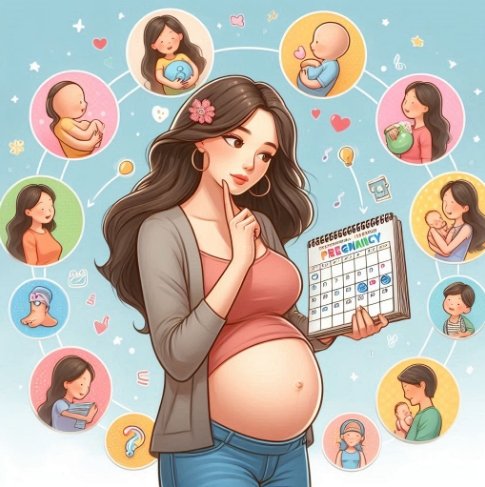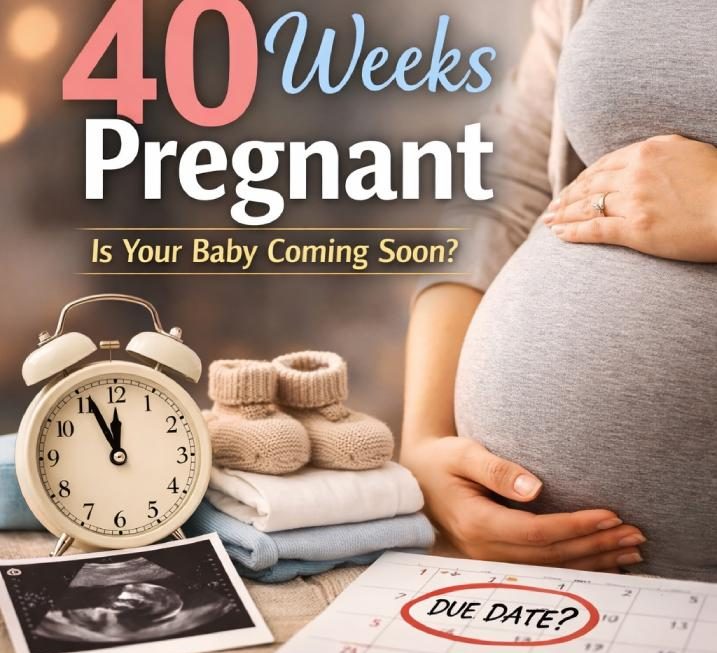Pregnancy is an exciting journey filled with anticipation and questions. One of the most common inquiries is, “How many weeks am I pregnant?” Knowing how far along you are helps you track important milestones, plan for the future, and understand what changes to expect in your body. In this article, we’ll explain how to calculate your pregnancy weeks, the role of ultrasound in determining gestational age, and what each week means for you and your baby.
How to Calculate How Many Weeks Pregnant You Are
Calculating how many weeks pregnant you are can seem tricky at first, but several methods exist to determine your gestational age. The most common way is to use the date of your last menstrual period (LMP). Doctors generally measure pregnancy from the first day of your LMP, even though conception usually occurs about two weeks later. This standard method is called gestational age and is widely used in medical practice.
Using Your Last Menstrual Period (LMP)
The LMP method counts from the first day of your last period. If you have regular cycles, this gives a fairly accurate estimate of how far along you are. Most pregnancies last around 40 weeks, or roughly 280 days, from the first day of your last period to your due date.
For example, if your LMP started six weeks ago, you’re considered six weeks pregnant, even though conception likely occurred about four weeks ago. This can feel confusing because, technically, you weren’t pregnant during the first two weeks of the 40-week count. However, this method standardizes pregnancy dating, making it easier to track the progress.
Understanding Ovulation and Conception
Ovulation typically occurs about two weeks after the first day of your period, depending on the length of your menstrual cycle. If you conceived around ovulation, this is called the conception date. However, it’s not often used to calculate how many weeks pregnant you are, mainly because pinpointing the exact day of conception can be difficult. The LMP method remains more accurate for most people.
Using a Pregnancy Calculator
Pregnancy calculators, also known as due date calculators, are handy tools available online that can quickly estimate your pregnancy week. By entering the date of your last period, the calculator will give you an estimated due date and how many weeks pregnant you are.
The Role of Ultrasound in Confirming Pregnancy Weeks
While the LMP method provides a good estimate, an ultrasound offers a more accurate way to determine your pregnancy timeline, especially if you have irregular periods. During an ultrasound, the technician measures the size of the fetus to calculate fetal age. This helps confirm the gestational age and provides a clearer picture of your due date.
First Trimester Ultrasound Accuracy
Ultrasounds performed in the first trimester are particularly accurate for dating pregnancy. Early ultrasounds measure the crown-rump length (CRL), which is the distance from the top of the baby’s head to its bottom. These measurements are typically accurate within five to seven days of your actual gestational age.
Why Ultrasounds Can Change Your Due Date
Sometimes, an ultrasound may result in your due date being adjusted. This happens if the fetal measurements show a different size than expected for your supposed gestational age. Doctors may revise your due date to better align with the baby’s growth, though it’s essential to remember that every pregnancy is unique, and variations in fetal development are normal.
What Happens at Each Week of Pregnancy?
Pregnancy is divided into three trimesters, each lasting about 12-14 weeks. Every week marks crucial developments in your baby’s growth and brings changes to your body. Here’s a breakdown of what happens during each stage of pregnancy.
Weeks 1-4: The Early Stage of Pregnancy
During the first four weeks, your body is gearing up for pregnancy. Though you won’t feel many symptoms right away, several important events take place, such as fertilization and implantation.
- Week 1: Even though you’re technically not pregnant yet, your body is preparing to release an egg during ovulation.
- Week 2: This is the week when ovulation occurs, and conception may happen.
- Week 3: Fertilization happens, and the newly formed embryo starts dividing rapidly.
- Week 4: The embryo implants in your uterine lining, and your body starts producing human chorionic gonadotropin (hCG), the hormone detected by pregnancy tests.
Weeks 5-8: Key Milestones in Early Pregnancy
By week five, you’re likely to miss your period and suspect you’re pregnant. This is when early pregnancy symptoms, like nausea and fatigue, often begin.
- Week 5: Your baby’s heart starts beating, and the basic neural tube, which will become the brain and spinal cord, forms.
- Week 6: The arms and legs begin to develop, though they look more like tiny buds.
- Week 7: Facial features like the mouth, nose, and eyes begin to take shape.
- Week 8: Fingers and toes start to appear, and your baby is about the size of a kidney bean.
Weeks 9-12: Approaching the End of the First Trimester
By week nine, you may start to feel more pregnant as hormonal changes intensify. Your baby is developing rapidly.
- Week 9: The baby’s major organs, like the heart, brain, and liver, continue developing.
- Week 10: Eyelids close to protect the developing eyes and will remain shut until the second trimester.
- Week 11: The baby begins making small, jerky movements, though you probably won’t feel them yet.
- Week 12: The risk of miscarriage significantly decreases after this point, and your baby is now fully formed, though tiny.
Tracking Your Pregnancy Week by Week
Knowing how many weeks pregnant you are allows you to monitor your baby’s development closely and prepare for the weeks ahead. As each week passes, your baby grows, and your body changes in ways that help support the pregnancy.
How to Use a Pregnancy Calendar
A pregnancy calendar is a useful tool for tracking your pregnancy week by week. It breaks down each stage of pregnancy, highlighting key developments and symptoms. You can find digital pregnancy calendars that sync with your due date, allowing you to track milestones, schedule prenatal appointments, and get reminders about upcoming tests or scans.
Frequently Asked Questions (FAQs)
1. How can I tell how many weeks pregnant I am without a doctor?
You can estimate how many weeks pregnant you are using the date of your last menstrual period (LMP). Pregnancy typically lasts 40 weeks from the start of your last period. If you’re unsure, a home pregnancy test or pregnancy calculator can help provide an estimate.
2. Is ultrasound more accurate than using my last menstrual period?
Yes, ultrasounds, especially those performed during the first trimester, tend to be more accurate than using LMP. They can measure the baby’s size and provide a more precise gestational age.
3. Can I use my conception date to figure out how many weeks pregnant I am?
While you can calculate pregnancy based on your conception date, it’s often tricky to pinpoint the exact day of conception. Most doctors prefer using the LMP method or an ultrasound for accuracy.
4. When should I have my first ultrasound?
Your first ultrasound usually happens between 8 and 12 weeks of pregnancy. This scan helps confirm how far along you are and checks the baby’s development.
5. What happens if my due date changes?
It’s normal for due dates to be adjusted, especially if the initial estimate based on your LMP differs from what the ultrasound shows. The revised due date provides a more accurate timeframe for your baby’s birth, though actual delivery may still vary.

Understanding how many weeks pregnant you are is essential for tracking your pregnancy’s progress, planning for prenatal care, and preparing for your baby’s arrival. By using the right methods and tools, you can get a clearer picture of where you are in your pregnancy and what to expect in the weeks ahead.


